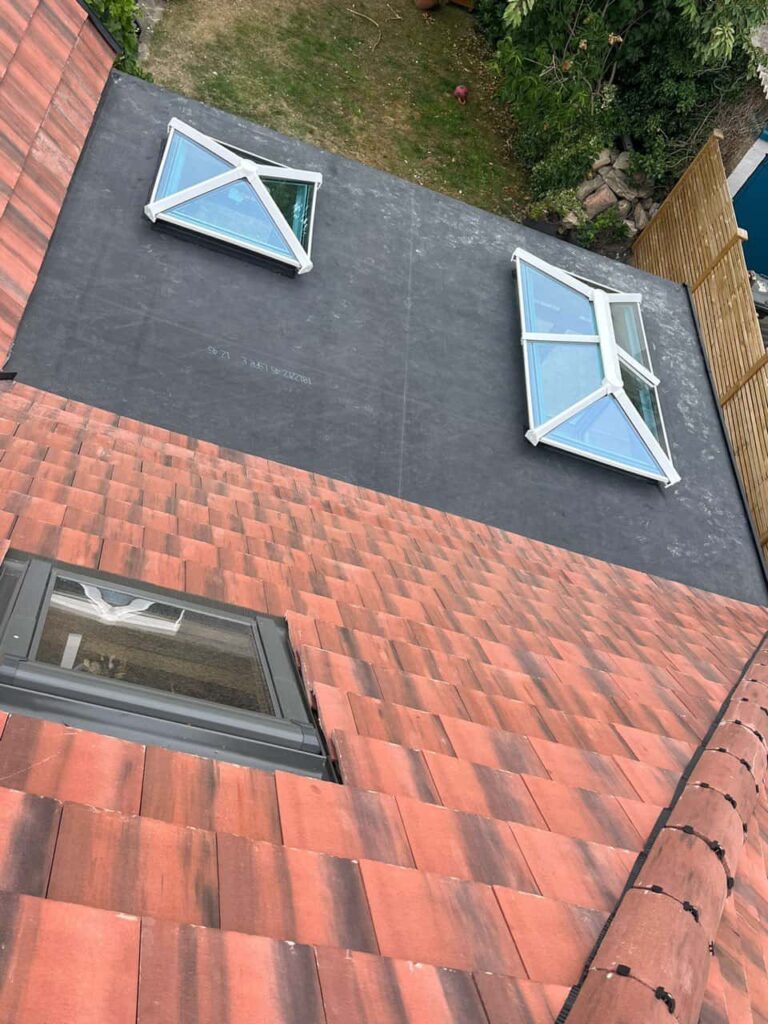Introduction: When it comes to flat roof construction, insulation is not just an optional add-on; it’s a fundamental component that plays a crucial role in ensuring comfort, energy efficiency, and structural integrity. Proper insulation in flat roofs helps regulate indoor temperature, prevent heat loss or gain, reduce energy consumption, and protect the building from moisture damage. In this blog post, we’ll explore the importance of insulation in flat roof construction and why homeowners and property managers need to prioritise insulation when planning or repairing their flat roofs.
Temperature Regulation:
- One of the primary functions of insulation in flat roofs is to regulate indoor temperature by minimising heat transfer between the interior and exterior of the building. During hot summer months, insulation prevents the roof from absorbing excessive heat from the sun, keeping the interior cool and comfortable. In colder seasons, insulation helps retain heat inside the building, reducing heating costs and ensuring a warm and cosy environment for occupants.
Energy Efficiency:
- Properly insulated flat roofs contribute to energy efficiency by reducing the need for heating and cooling systems to maintain comfortable indoor temperatures. By minimising heat loss in winter and heat gain in summer, insulation helps lower energy consumption, decrease utility bills, and minimise the carbon footprint of buildings. High-quality insulation can lead to significant long-term cost savings and environmental benefits for homeowners and property owners.
Moisture Management:
- In addition to regulating temperature, insulation is crucial in managing moisture and preventing condensation within flat roof structures. Moisture accumulation can lead to mould growth, rot, and structural damage, compromising the integrity of the roof and posing health risks to occupants. Proper insulation with vapour barriers helps control moisture levels, creating a dry and healthy indoor environment and prolonging the roof system’s lifespan.
Structural Integrity:
- Insulation also contributes to the structural integrity of flat roofs by reducing thermal stress and preventing temperature-related expansion and contraction of roofing materials. Temperature fluctuations can cause roofing materials to expand and contract unevenly without adequate insulation, leading to cracks, leaks, and premature deterioration. Insulation helps protect the roof structure and prolong its service life by providing a stable thermal barrier.
Soundproofing:
- In addition to thermal benefits, insulation in flat roofs can also provide soundproofing properties, reducing noise transmission from external sources such as traffic, aircraft, or neighbouring buildings. This is particularly important for residential buildings, offices, or commercial spaces where noise control is essential for occupant comfort and productivity.
Conclusion: Insulation is a critical element of flat roof construction that offers many benefits, including temperature regulation, energy efficiency, moisture management, structural integrity, and soundproofing. Whether building a new flat roof or repairing an existing one, investing in quality insulation is essential for creating a comfortable, energy-efficient, and durable roofing system. If you’re considering flat roof repairs or upgrades, consult with experienced professionals to ensure that insulation is properly installed and integrated into your roofing project. By prioritising insulation, you can enhance your flat roof’s performance, longevity, and sustainability while improving indoor comfort and reducing energy costs.
Call us on: 01332 215 195
Click here to find out more about Borrowash Roofing Repairs
Click here to complete our contact form and see how we can help with your roofing needs.

